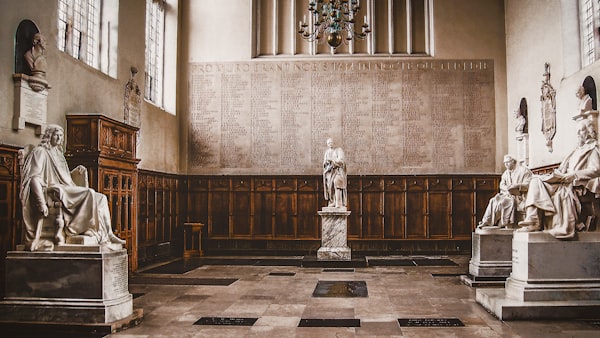Film Discussion 08: Lawrence of Arabia
Lawrence of Arabia may be a long movie, but that just means there's plenty to discuss! We did our best, but I feel like there was plenty more left on the table that we didn't have time to get to. We did though get a chance to explore how this movie fits within the tradition of epics (both written and visual), the complexity of Lawrence's heroism, his changing view of the desert, and the blessing and curse of being gifted with the greatness required to be a leader.
As we mentioned, I definitely want to watch the movie again as there's still plenty to mull over. Check out the show notes below as well if you need some prompting.
We'd love to have you join us for the next one! We'll be meeting via Google Hangout on May 5th at 7pm PDT, and discussing Taxi to the Dark Side, which will hopefully provide a nice modern comparison of the Middle East today. See you all soon!
Show Notes
1. "Perspective: Michael Anderegg on The Movie" in the Lowell Thomas and T.E. Lawrence Exhibit on ClioA great online museum exhibit covering the real Lawrence and the movie's relation to him.
Nevertheless, the film presents its own, self-contained world. ‘Lawrence of Arabia’ is, among other things, an essay on the paradox of heroism, on the inevitable, unfathomable fissures that separate impulse from act, history from myth, the self from the image of the self.And of the transformation Lawrence makes in the movie:
Twice in the film, Lawrence looks at his own reflection in the blade of his knife. In the first instance, he is still relatively innocent. He has just put on his white robes for the first time, and he studies the image reflected back to him in puzzled admiration, not quite believing that he has been able so thoroughly and drastically to change his identity. The second time, much later in the film, the context is very different. Lawrence, after giving the order to take no prisoners, participates in the massacre at Tafas. The white robes are now soiled with blood, and the face Lawrence submits to reflective scrutiny seems to be that of a madman. Neither man nor role are recognizably what they were before, and Lawrence can now only retreat from heroism, put aside his Arab dress, and return to England and the absurd, perhaps not entirely accidental death with which the film began.2. "Lawrence of Arabia" by Roger Ebert
On how this film fits in with the visual epic tradition:
I've noticed that when people remember “Lawrence of Arabia,” they don't talk about the details of the plot. They get a certain look in their eye, as if they are remembering the whole experience, and have never quite been able to put it into words. Although it seems to be a traditional narrative film--like “The Bridge on the River Kwai,” which Lean made just before it, or "Doctor Zhivago," which he made just after--it actually has more in common with such essentially visual epics as Kubrick's "2001: A Space Odyssey," or Eisenstein's “Alexander Nevsky.” It is spectacle and experience, and its ideas are about things you can see or feel, not things you can say. Much of its appeal is based on the fact that it does not contain a complex story with a lot of dialogue; we remember the quiet, empty passages, the sun rising across the desert, the intricate lines traced by the wind in the sand.And on the true meaning of "epic" in cinema:
The word “epic” in recent years has become synonymous with “big budget B picture.” What you realize watching “Lawrence of Arabia” is that the word “epic” refers not to the cost or the elaborate production, but to the size of the ideas and vision.3. Blue-eyes Is Back [LAWRENCE OF ARABIA] by Jonathan Rosenbaum
On the legacy of the film:
Freddie Young’s Super Panavision, 70-millimeter cinematography, for starters, is conceivably the greatest desert photography that we have in movies, and some of the film’s greatest moments are elongated meditations on mountains, camels, and mirages — moments that give us a sense of space, history, and even psychology that goes beyond any of the particulars found in Bolt’s extremely literate dialogue.




